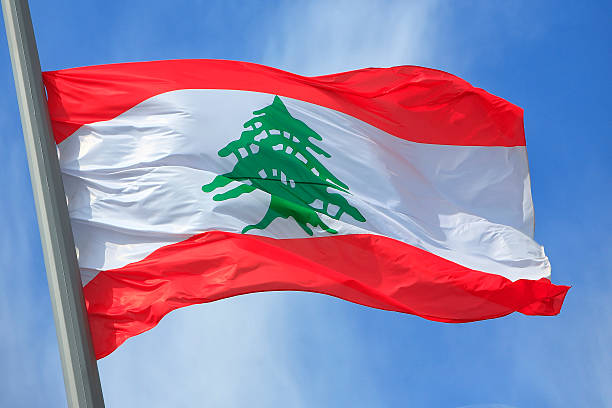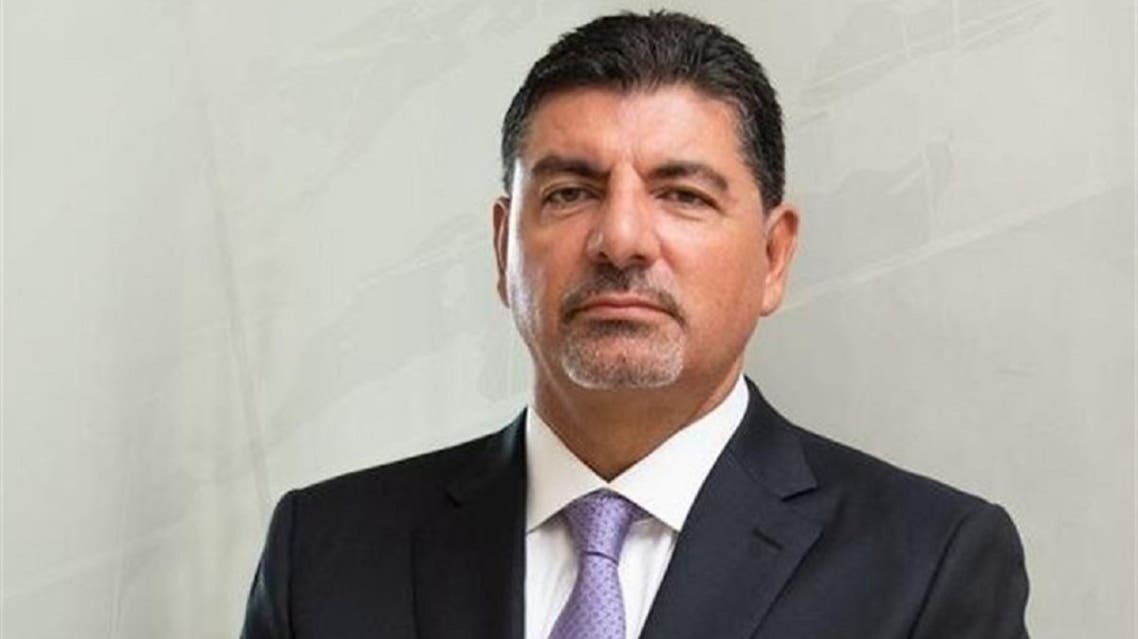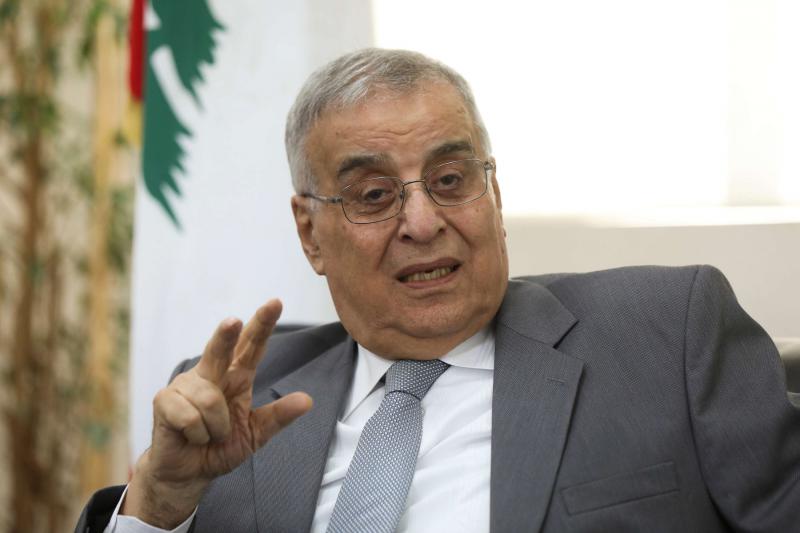
By Edward Gabriel -- thehill.com -- Lebanon is at a crucial crossroads as its government finally convenes for the first time in several months. It will have little time to negotiate a reform package with the International Monetary Fund to avoid economic collapse. And while the Shiite duo of the Amal movement and Hezbollah recently made headlines by ending their three-month boycott of cabinet sessions, thus allowing the government to convene, this is no assurance that they will not continue to meddle with Lebanese lawmakers to derail any reform package that is needed to begin rebuilding.
Right now, the Lebanese people are suffering; many are starving and rightfully distrustful that the government will come to their assistance. The Lebanese Armed Forces (LAF) and Internal Security Forces (ISF) are experiencing challenges in carrying out their missions, which could create regional problems if Lebanon’s security and sovereignty are not protected. How the United States responds to these troubles can play a pivotal role in helping to stabilize one of the few liberal democratic states in the Arab world.
Lebanon’s collapse would end the many assets it brings to the Middle East: counterterrorism cooperation with the U.S., an inclusive democracy, religious coexistence, gender equality, and access to Western education (especially the two leading American universities in the Middle East). Increased Iranian influence in Lebanon could lead to the country’s loss of sovereignty and independence and likely would result in a growing terror threat to the U.S. There is no looking the other way; the US must act. A new policy brief released by the American Task Force on Lebanon, the Middle East Institute and more than 20 leading policymakers makes the case that friends of the U.S. and Lebanon in the international community can play a critical role in encouraging Lebanese politicians to put the Lebanese people first when setting policy, and not their personal interests.

by arabnews.com -- BEIRUT: Lebanon’s Bahaa Al-Hariri said on Friday that he would continue the journey of his father, the late Prime Minister Rafik Al-Hariri, and would “enter the battle to take back” the country. Bahaa’s younger brother, Saad, a three times prime minister, announced earlier this week that he was not running in a forthcoming parliamentary election and was stepping back from his role in political life, calling on his political party to do the same. Bahaa, 55, who has not held public office before and largely kept away from politics, said in a recorded speech sent to news outlets, including Sawt Beirut, that he “will fight the battle to restore the country and restore the sovereignty of the country from its occupiers.” He added that “any misinformation or intimidation” alluding to a power vacuum among Lebanon’s Sunni Muslims “serves only the enemies of the country.”
Saad cited Iran’s influence as one of the reasons he saw little hope of positive change for Lebanon, an influence it wields through Shiite group Hezbollah. Bahaa has been an open, fierce critic of his brother’s policy toward the Iran-backed group. “The son of the martyr Rafik Hariri will not leave Lebanon, I am with you and very soon I will be among you,” Bahaa said in his speech.

By Laila Bassam BEIRUT (Reuters) - Lebanon's foreign minister said he was not going "to hand over" Hezbollah's weapons during a meeting this weekend with Gulf Arab counterparts that want Beirut to rein in the Iran-backed Lebanese Shi'ite group in exchange for improved ties. In a nod to Gulf concerns, Lebanon will however say that the country will not be "a launchpad for activities that violate Arab countries," according to sources familiar with a draft government letter responding to Gulf terms for improved ties. Lebanon is due at the meeting in Kuwait on Saturday to deliver its response to the terms for thawing relations, which have suffered as the heavily armed Hezbollah has grown more powerful in Beirut and the region. "I am not going (to Kuwait) to hand over Hezbollah's weapons. I am not going to end Hezbollah's existence, it is out of the question in Lebanon. We are going for dialogue," Lebanese Foreign Minister Abdallah Bou Habib told Al Jazeera.
Hezbollah supports Iran in its regional struggle for influence with U.S.-allied Gulf Arab states, which say the group has aided the Iran-aligned Houthis who are fighting a Saudi-led coalition in Yemen. Founded by Iran's Revolutionary Guards in 1982, Hezbollah has a militia more powerful than Lebanon's army and has backed pro-Iran allies in the region, including Syria. The group and its allies also exercise major sway over Lebanese state policy.

أعرفُ كيف يَنعكِسُ فشلُ مؤتمرِ ڤيينا حولَ النوويِّ الإيرانيِّ سلبًا على لبنان، لكنّي لا أعرِفُ كيف يَنعكِسُ نجاحُه إيجابًا عليه. ولستُ متيقِّنًا إذا كان المتعارفُ عليه أنّه سلبيٌّ هو حقًّا سلبيٌّ، والمتعارَفُ عليه أنّه إيجابيٌّ هو حقًّا إيجابيّ. حين يَبلغُ الصِراعُ بين الأطرافِ اللبنانيّةِ نُقطةَ اللاعودة ـــ كما الحالُ راهنًا ـــ يُصبح الإيجابيُّ لطرفٍ سلبيًّا للآخَر. نحن نَتقاسمُ المشاكلَ ذاتَها ونَفترقُ حِيالَ الحلولِ والأحلام. معيارُ إيجابيّةِ ڤيينا بالنسبةِ للبعضِ هو إنهاءُ كلِّ الحالاتِ غيرِ الدستوريّةِ في الحياةِ الوطنيّةِ اللبنانيّةِ وإعادةُ لبنانَ دولةً حرّةً (هذا هو الحلُّ الطبيعيُّ). ومعيارُ سلبيّةِ ڤيينا بالنسبةِ للبعضِ الآخَر هو الإبقاءُ على هذه الحالاتِ الشاذّةِ والاعترافُ بها والتعايشُ معها خِلافَ الدستورِ والقراراتِ الدُوليّةِ (وهذه هي التسويةُ المميتةُ).
غالِبيّةُ التسوياتِ التي "نَجحَت" في الشرقِ الأوسَط، وكانت الولاياتُ المتّحدةُ الأميركيّةُ الطرفَ الأساسيَّ فيها، غَدَرت بلبنان. وعلى سبيلِ المثال:
1) بعدَ نجاحِ مفاوضاتِ "كمب دايفيد" (17 أيلول 1978) بين مصر وإسرائيل برعايةٍ أميركيّةٍ، نَشبَت حربُ المئةِ يومٍ في الأشرفيّة ومعركةُ زحلة بين جيشِ الاحتلالِ السوريّ والقوّاتِ اللبنانيّةِ بقيادةِ بشير الجميّل، وتصاعَدت العمليّاتُ العسكريّةُ الفِلسطينيّةُ في بيروت والجَنوب. 2) إثْرَ نجاحِ أميركا في إقناع سوريا (أيلول 1990) بالانضمامِ إلى التحالفِ الدُوَليِّ في حربِ تحرير الكويت، أُطلِقَت يدُ الجيشِ السوريِّ فاحتَلَّ بيروت واقتَحَم القصرَ الجُمهوريَّ ووزارةَ الدفاعِ (اجتياحُ 13 تشرين الأول)، وقَرَّت عيونُ البعضِ بولادةِ النظامِ الأمنيِّ اللبنانيِّ/السوريّ. 3) عَقِبَ نجاحِ المفاوضاتِ النوويّةِ الأولى في ڤيينّا (14 تموز 2015) بين أميركا وإيران، حَصل تعطيلُ الدستورِ والشغورُ الرئاسيُّ والتسويةُ الرئاسيّةُ سنةَ 2016، وسيطَرَ حزبُ الله على الدولةِ اللبنانيّة.
Khazen History


Historical Feature:
Churches and Monasteries of the Khazen family

St. Anthony of Padua Church in Ballouneh
Mar Abda Church in Bakaatit Kanaan
Saint Michael Church in Bkaatouta
Saint Therese Church in Qolayaat
Saint Simeon Stylites (مار سمعان العامودي) Church In Ajaltoun
Virgin Mary Church (سيدة المعونات) in Sheilé
Assumption of Mary Church in Ballouneh
1 - The sword of the Maronite Prince
2 - LES KHAZEN CONSULS DE FRANCE
3 - LES MARONITES & LES KHAZEN
4 - LES MAAN & LES KHAZEN
5 - ORIGINE DE LA FAMILLE
Population Movements to Keserwan - The Khazens and The Maans
ما جاء عن الثورة في المقاطعة الكسروانية
ثورة أهالي كسروان على المشايخ الخوازنة وأسبابها
Origins of the "Prince of Maronite" Title
Growing diversity: the Khazin sheiks and the clergy in the first decades of the 18th century
Historical Members:
Barbar Beik El Khazen [English]
Patriach Toubia Kaiss El Khazen(Biography & Life Part1 Part2) (Arabic)
Patriach Youssef Dargham El Khazen (Cont'd)
Cheikh Bishara Jafal El Khazen
Patriarch Youssef Raji El Khazen
The Martyrs Cheikh Philippe & Cheikh Farid El Khazen
Cheikh Nawfal El Khazen (Consul De France)
Cheikh Hossun El Khazen (Consul De France)
Cheikh Abou-Nawfal El Khazen (Consul De France)
Cheikh Francis Abee Nader & his son Yousef
Cheikh Abou-Kanso El Khazen (Consul De France)
Cheikh Abou Nader El Khazen
Cheikh Chafic El Khazen
Cheikh Keserwan El Khazen
Cheikh Serhal El Khazen [English]
Cheikh Rafiq El Khazen [English]
Cheikh Hanna El Khazen
Cheikha Arzi El Khazen
Marie El Khazen